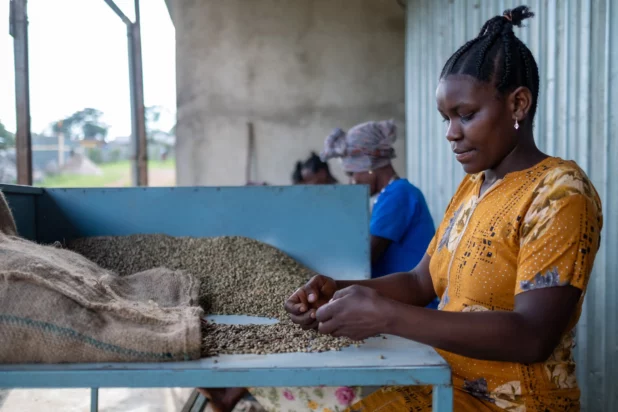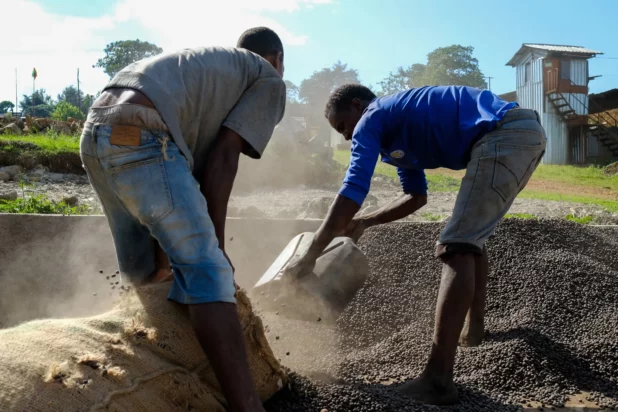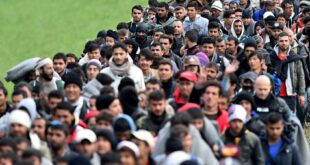Well, they declared war on cigarettes.
No one should have expected that coffee was safe.
Coffee is the brother of cigarettes.
The first white flowers are starting to appear on the branches of Habtamu Wolde’s coffee bushes in the Kafa region of southwest Ethiopia. They will bloom several more times before turning into round red cherries ready for harvesting in October. Then they will be prepared for export and shipped to the capital.
“Our coffee is iconic, you cannot find a higher grade,” boasts Habtamu. Coffee is more than a drink in Kafa. This region claims to be the birthplace of Arabica coffee, which grows naturally in its temperate cloud forests. The plant is at the centre of daily life and the people’s main source of income.
“Coffee is part of the Kafa people’s identity,” says Habtamu, from his eight-hectare (20-acre) plantation. “We would not survive without it.”

Coffee is Ethiopia’s biggest export – comprising about a third of export earnings – and the main source of foreign currency. The European Union is the biggest market, taking more than 30% of Ethiopia’s beans. In Kafa, 80% of the beans produced go to Germany.
Across Ethiopia, 5 million smallholders depend on growing coffee. Another 10 million workers wash, process and transport the beans. The industry has boomed in recent years, helping drive Ethiopia’s economic growth. But producers say it is at risk from new European legislation – the EU Regulation on Deforestation-free Products (EUDR) – due to come into force in 2025.
This is the EU again telling the blacks how to run their own society, and demanding they follow the white man’s rules.
These are the same people who did riots for George Floyd, by the way. Just so you understand.
The EUDR bans the sale of coffee, rubber, cocoa and other products if companies cannot prove that it did not come from deforested land. Environmentalists have hailed it as an historic achievement.

Yet Ethiopia’s coffee industry claims the new rules are unfair since almost all Ethiopia’s coffee is grown by poor farmers who own small plots of land and lack the expertise to gather the complex data needed to show compliance.
“The EUDR changes everything,” says Abebe Megnecto, the manager of Kafa’s coffee union, which represents 13,676 local farmers. “Meeting the criteria requires a lot of technology and manpower that we simply don’t have.”

Abebe Megnecto
Abebe and other Ethiopian coffee officials argue that their beans are more sustainable than those from other big producers, such as Brazil, where most coffee plantations are vast monocultures cut from the jungle, sustained by fertiliser and devoid of trees.
By contrast, Ethiopia’s coffee farming relies on maintaining forests and the shade they provide, which protects coffee plants from the heat. The beans are grown by smallholders who on average cultivate less than two hectares of land. Abebe says: “Our way of growing coffee is far less damaging.”
Nonetheless, orders are already slowing from European buyers, who face fines of up to 4% of their turnover if they bring non-compliant products into the EU.
“Buyers are hesitating to buy our coffee because they are not confident we can demonstrate compliance,” says Tsegaye Anebo, manager of the coffee farmers union in Sidama, about 150 miles east of Kafa. “We are thinking of diversifying to other markets, but that will take years. It’s not simple.”
It’s almost like the EU purposefully disrupts the economies of Africa so they can bring in even more African immigrants.
Why would white women do that?



 Daily Stormer The Most Censored Publication in History
Daily Stormer The Most Censored Publication in History




